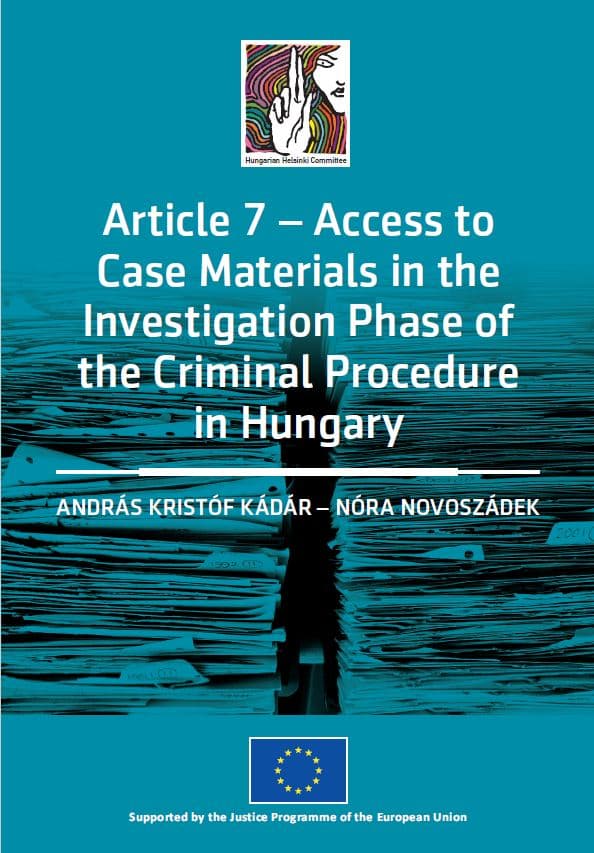Article 7 – Access to Case Materials in the Investigation Phase of the Criminal Procedure in Hungary
Translation is available for this content
Váltás magyarra Promoting access to case materials of defendants and their defense counsels in criminal proceedings has been a long-standing priority of the HHC, and is related to activities involving a series of successful applications submitted to the ECtHR. The implementation of the Right to Information Directive by Hungary in 2014–2015 constituted a major step in ensuring the right to access of case materials.
Promoting access to case materials of defendants and their defense counsels in criminal proceedings has been a long-standing priority of the HHC, and is related to activities involving a series of successful applications submitted to the ECtHR. The implementation of the Right to Information Directive by Hungary in 2014–2015 constituted a major step in ensuring the right to access of case materials.
Through its project “ARTICLE 7 – Ensuring Access to Case Materials in Hungary”, launched in 2015, the HHC aims to monitor the implementation of the Directive’s respective Article 7 on access to case materials in practice, to advocate for the correct implementation of Article 7 of the Directive in Hungary by identifying deficiencies in law and practice and to produce concrete proposals to address them, and to contribute to the correct implementation of Article 7 of the Directive across the EU by developing, testing and disseminating a method for assessing whether the right to information of defendants is respected. Related research activities include interviews with judges and prosecutors, and in-depth interviews with defense attorneys, coupled with case file review.
Research results and the HHC’s related recommendations were discussed with stakeholders and experts at a workshop held in June 2017. The research report finalized on the basis of the results of that workshop is available here in English and in Hungarian:
- Article 7 – Access to Case Materials in the Investigation Phase of the Criminal Procedure in Hungary
- 7. cikk – A büntetőügyek irataihoz való hozzáférés a nyomozati szakban Magyarországon
Further publications produced in the project:
- country studies on the implementation of Article 7 of the Right to Information Directive in Belgium, England and Wales, Germany and Romania (in Hungarian and in English);
- methodological manual (in English);
- executive summary of research results in French, Polish, German, Italian and Spanish
 Supported by the Justice Programme of the European Union
Supported by the Justice Programme of the European Union